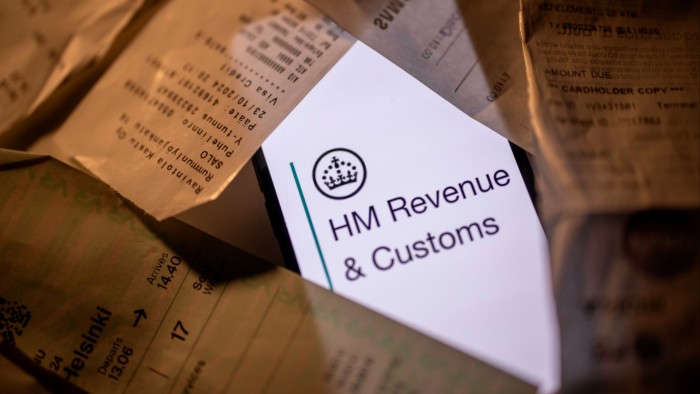Unlock the Digest of the editor for free
Less than half of the fines that had been charged to British companies for submitting their accounts was paid too late last year, so questions were raised about the efficacy of home enforcement of companies.
Only £ 73.5 million, or 46 percent of the £ 158 million in fines that were paid to offensive companies in 2023/24, a decrease of 57 percent collected in 2019/20- The last full financial year before companies a three- Month extension for submitting between June 2020 and April 2021 as a result of the COVID-19 Pandemie.
Between 2018/19 and 2023/24, £ 386 million was not collected of a total of £ 785 million levied in fines on companies, according to figures described under the freedom of information legislation.
Companies receive fines from the House of Companies if they have their accounts submitted, with the money that was ultimately paid to the treasury.
The fines vary from £ 150 for private entities that submit within one month after the deadline, up to £ 15,000 for public who submit more than six months late for two consecutive years.
Craig Beaumont, executive director at the Federation of Small Businesses, said that the data raises questions about disclosures about fines by Companses House, an executive agency of the Department for Business and Trade.
Although the Bureau publishes data on the number and value of fines, it is not indicated how many fines are actually paid.
Beaumont added: “If this is the same [directors of companies repeatedly]Collecting more and more fines, but without meaningful involvement, this will snow until the authorities start enforcement. ”
Not delivering accounts is a criminal offense, in which 987 directors were prosecuted because they did not do this in 2023/24 and can ultimately lead that companies are affected by the company register.
Johnathan Dudley, a partner at Crowe Accountantskantoor, said that the statistics were ‘alarming’ and showed what happened if the directors of Rogue companies were not called to account.
“You can threaten what you like, but if you don’t concern teeth, this will continue,” he said.

Companies House said that it “had robust procedures for the collection of all unpaid penalties”, and that it “uses new powers to tackle persistent non-compliance”.
“Debts are only debited after four years and when all repair options are exhausted, or there is no economic advantage to pursue them further,” it added.
Dudley said that the inequality between paid fines and the entire entire amount can also be further evidence of ‘ghost’ companies that were formed during the pandemic to receive bounce of back loans, but that have now become insolvent with their directors who ‘go to the Hills ran ‘.
This is because companies that do not pay their fine, maybe never submit their accounts because the company revolted, he said.
“If this one [offending] Companies were formed during Covid with a view to securing Covid -Loingen, then the individuals will be difficult to find, “he said.
The Bounce -Back -Loan schedule was launched in May 2020. It was aimed at the smallest companies and offered loans up to £ 50,000 – or 25 percent of the annual turnover – to help them float during the pandemic.
About £ 47 billion of the loans were issued, without compulsory credit checks for borrowers. The government gave a 100 percent guarantee for the loans if companies were unable to pay back.
The Public Accounts Committee of the Lower House estimated in April 2022 that up to £ 17 billion of the loans would never be recovered, with £ 4.9 billion being lost due to fraud.
A spokesperson for the Ministry of Business and Trade said that “it would always protect the interests of the taxpayer” and had appointed a commissioner to reclaim money that was lost through fraud.
